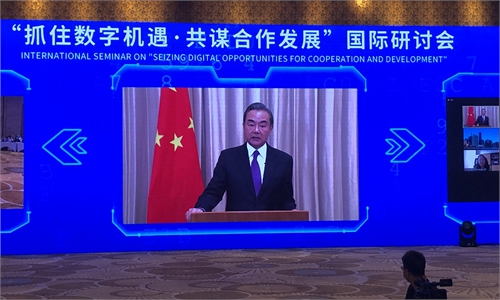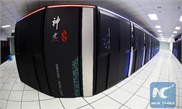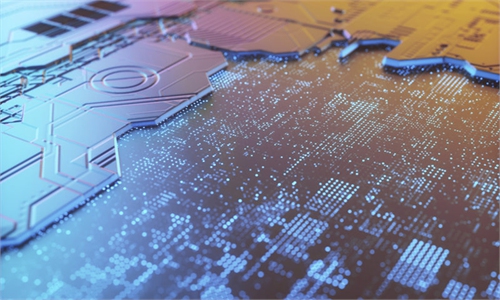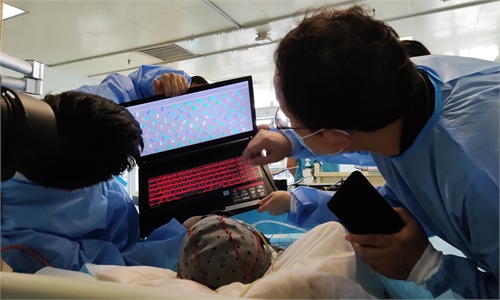Men, if you are having trouble with urination, it could be due to an enlarged prostate.
WHEN it comes to men’s health, the prostate is one of the organs that garners the most attention as it is a vital part of the male reproductive system.
The prostate is a small, squishy gland about the size of a walnut, located deep inside the groin, below the bladder, at the base of the penis and in front of the rectum.
 |
| The prostate is a walnut-shaped male gland situated deep inside the groin, below the bladder.- 123rf.com | | | |
An enlarged prostate is, by far, the top reason men have trouble peeing. The prostate gland sits right below the bladder. Urine travels from the bladder through a channel that runs right through the prostate to the urethra, where it exits the body.
A sexual gland, its most important function is the production of a fluid that, together with sperm cells from the testicles and fluids from other glands, makes up semen.
“When a man reaches climax, the sperm is mixed with water from the prostatic fluid and propelled out through the urethra tube.
“So, he ejaculates two things – the prostatic fluid and the semen,” explains consultant urologist Dr Datesh Daneshwar.
“This whole mechanism is so intricate that at the time of climax, he needs to stop peeing.
“There is a muscle that stops you from peeing, yet allows the semen to come out through the urethra via the penis and out of the body.”
Men often think that prostate enlargement (benign prostatic hyperplasia or BPH) is a natural part of ageing, but this is not necessarily true.
Says Dr Datesh, “With ageing, the prostate can enlarge, and if it does, it usually enlarges in the outward direction and doesn’t cause a compression of the urethra.
“It does not cause symptoms all the time and needs no treatment because it doesn’t trouble a man.
“But when it enlarges in the inward direction, it causes a blockage of the urethra and can lead to men having problems passing urine or with ejaculation; it can also cause erectile dysfunction.
“Being told on a routine ultrasound that your prostate is enlarged is not a reason to run to your urologist, unless you have some bothersome urinary symptoms – even something as trivial as needing to constantly get up in the middle of the night to pee.”
 Aside from those who sit most of the day, avid male cyclists may also be at
risk of developing prostatitis due to the compression of their pelvic
area
Aside from those who sit most of the day, avid male cyclists may also be at
risk of developing prostatitis due to the compression of their pelvic
area
No one knows the actual cause of prostate enlargement, although ageing, changes in the testicular cells and testosterone levels are believed to play a role in the growth of the gland.
The urologist says, “All the nerves that allow an erection are located around the prostate, and if you have an enlargement, these nerves are compressed and go wonky, so you will not have a proper erection.
“The inner part of the prostate is mostly muscle, so it’s pliable or elastic.
“Due to the enlargement, it becomes stiff – similar to inflammation that can take place in other body parts, e.g. the neck, legs, arms, etc.
“All this while, we have assumed that this enlargement has got to do with the increased number of prostate cells.
“However, I found that a lot of men have an injury to the prostate that makes the individual cells enlarged.”
For clearer understanding, Dr Datesh presents the following scenarios to his patients.
Imagine you have been hit hard on the arm.
When you put on a shirt, your hidden swollen arm may look “muscular”, but in actual fact, it is injured.
Or you could have hit the gym, worked out really hard and built your arm muscles, making you truly muscular.
The net result is the same: enlargement.
“The majority of men who have an enlarged prostate have a component of inflammation, which is known as prostatitis.
“It could be caused by swollen cells, which can be the result of a bacterial infection or injury.
“The bacterium that has been implicated in this is Chlamydia trachomatis, which is sexually transmitted (and causes chlamydia).
“It can remain dormant inside your prostate for years before acting up.
“As for injury, the mode is unclear – it could be caused by a catheter that was put into the penis during surgery or a camera that was inserted into the penis to remove a kidney stone, etc.
“Yet, there are men who have none of these, but still have an injured prostate,” he says.
He adds that, “Some factors that may cause the injury are excessive sitting or cycling.
“Any pressure on the perineum can lead to inflammation of the prostate and pelvic floor muscles, and this then causes urinary problems.”
A recurring problem
Besides urinary problems (i.e. dribbling, pain or too frequent), other symptoms of prostatitis include blood in the urine, groin pain, rectal pain, abdominal pain, lower back pain, fever, chills, body aches, urethral discharge, painful/ premature ejaculation, poor erection, lack of morning erection and sexual dysfunction.
Depending on the cause, prostatitis can come on gradually or suddenly.
It might improve quickly, either on its own or with treatment.
Some types of prostatitis last for months or keep recurring, which can greatly affect a man’s quality of life and cause low self-esteem.
To treat prostatitis, doctors will prescribe antibiotics, alpha blockers (to relax the bladder neck and muscle fibres where the prostate joins the bladder) and anti-inflammatory agents.
They may also suggest a prostatic massage, which can be very unpleasant.
Unlike BPH, which affects men above 50, most prostatitis patients are in the 30-50-years age bracket.
Dr Datesh says, “I have seen patients as young as 17 and as old as 90 with prostatitis.
“The management of this is different from standard management of BPH.
“Until now, we have never had a proper curative management, so the problem can be treated, but will come back every few months or years.
“A prostatitis patient then becomes a permanent patient of the urologist because his condition recurs.”
He relates a case of a 42-year-old fit and healthy patient who was rushed to the emergency department because he couldn’t pee after returning from a long flight.
A catheter was inserted and almost one litre of urine was drained.
He shares, “We started him on medicines and hoped he could pee.
“A few days later, we removed the catheter, and once again, he couldn’t pee.
“So, the next option would have been to do a surgical transurethral resection of the prostate, but that would have left him with sexual dysfunction for the rest of his life, and that wasn’t fair to the young man!”
He explains: “The surgery involves going through the urinary tube and coring his prostate from within to cut off the inner part (like removing the core of an apple) so that he can pee easier, but in the process, we would have altered the anatomy in the region and destroyed a lot of things.
“The man might end up having incontinence or retrograde ejaculation as the semen goes back into his bladder … everything goes haywire.
“An old man who cannot pee might be thankful, but not a young person.”
Instead, Dr Datesh treated him using antibiotics, along with low intensity shockwave therapy – a method that applies shockwaves directly to the prostate to reduce the inflammatory response and heal the tissues.
“After one session, this man was able to pee, and now, two years later, he’s peeing like a horse!
“I used to do the coring surgery every week, but I haven’t done one in two years because the shockwave therapy provides an effective option,” says the extremely pleased Dr Datesh, who is among the handful of local urologists practising this non-invasive method.
A ‘shock-ing’ option
Shockwave therapy has been around for 40 years and was initially used to break kidney stones, but has since been modified.
Instead of breaking, it creates regeneration and is used in wound healing, arthritis and muscle spasms.
In urology, it is considered new and has been used in the last 12 years to open up blocked blood vessels (due to diabetes, hypertension or heart disease) and enhance circulation to the penis.
“It also wakes up your stem cells to create regeneration.
“As we get older, our stem cells become more dormant and that’s why we don’t heal so well.
“It feels like acupuncture. There are zero complications, no burning sensation and no reported side effects.
“It’s not mainstream treatment, but the science is good and patients have this non-invasive option.
“There’s no fixed duration for treatment, but I do it twice a week for a total of 10 sessions, each lasting 12 minutes.
“Once the therapy is completed, antibiotics and alpha blockers are given for a month,” shares Dr Datesh.
While medicines (which come with side effects) can sort out 90% of prostatitis cases, there will be recurrence for 50-60% of patients after a few months or years.
With shockwave therapy, there is a 90% cure rate, but the studies only go back to the past eight years.
So far, Dr Datesh says the majority of his patients remain well.
“Like any muscular problem, it does go away, but there is a chance for it to come back and we don’t know why this happens.
“I’m extrapolating that humans are not supposed to be on their butts the whole day, but we cannot tell people to stop sitting!
“This problem is not seen in people who stand or do manual labour.
“How much butt tissue you have is also a factor, because without much flesh, the area is compressed further when you’re seated,” he adds.
Unfortunately, there are no tests or scans you can do to diagnose prostatitis – it’s a clinical diagnosis, akin to endometriosis in women.
“It’s very difficult to prove prostatitis microscopically or conclusively because we would have to take out the prostate and send it to the lab for analysis – obviously, this is not possible.
“So we have to put a lot of things together before coming up with a diagnosis.
 |
| Dr.DATESH DANESHWAR: |
According to Dr.Datech,aAround 80% of men walking around with urinary problem and sexual dysfunction actually have prostatitis and don’t know it.
“They all want the blue pill (sildenafil)!” he says, smiling.
“They need to sort out their prostatitis, then they can enjoy life.”
Men who don’t ejaculate enough may also experience some amount of prostatic inflammation at some point.
“Best to do it three times a week!” he says with a wink.
Good urine flow
Men, irrespective of age, are supposed to have good urination and morning erections their whole lives – it shows that their hormone levels and circulation are intact.
For the past decade, Billy (not his real name), 54, had been experiencing poor urine flow.
It started when he took antinausea pills before going fishing.
Once he returned to shore, he couldn’t pee.
“Apparently, these pills can make any underlying prostate issues surface.
“I sought treatment, and for a while it was okay with medicines, but the problem returned three years ago.
“Although I had no other symptoms, I knew it was a prostate issue as I’m a doctor myself,” says the anaesthesiologist.
He did a series of tests and scans to rule out cancer.
Besides an enlarged prostate and a slightly elevated prostate-specific antigen test level, the results came back negative.
He was prescribed drugs and hormone suppressants.
Billy shares, “The flow was improving, but it still wasn’t good and the side effects were unpleasant.
“It reduced my sexual satisfaction as it caused dry ejaculation.
“I was contemplating surgery because both my late father and grandfather had similar problems and underwent surgery in their 50s.”
For a year, he lived with the dysfunction until he found out about shockwave therapy.
Six sessions later, he noticed an improvement.
“Since the scans and tests showed nothing, the urologist decided to treat my symptoms as prostatitis.
“My pee is much better now than it was 10 years ago.
“I’m at the stage where I only take drugs once a week or when necessary.
“I believe I have an enlarged prostate and prostatitis as both can co-exist.
“I would probably need surgery at some point, but hopefully, I can delay it for another 10 years,” he says.
Dr Datesh concludes, “Men, be aware that urinary problems are not normal at any age, and if you have them, it is not necessarily related to cancer or BPH. You’re not doomed.
“It could be an inflammatory problem or as the Malays would say‘ masuk angin’. Get it checked.”
By REVATHI MURUGAPPAN
starhealth@thestar.com.my
Related
Having trouble peeing? Your prostate is likely the culprit




















